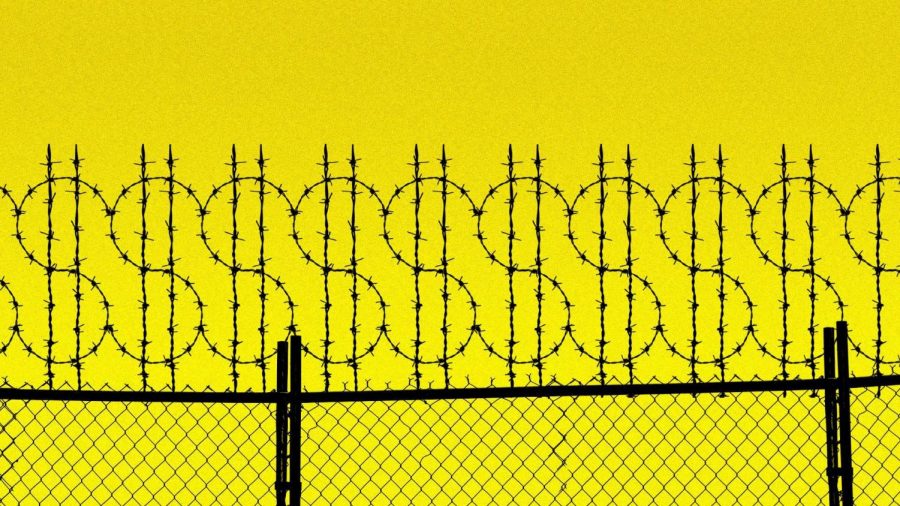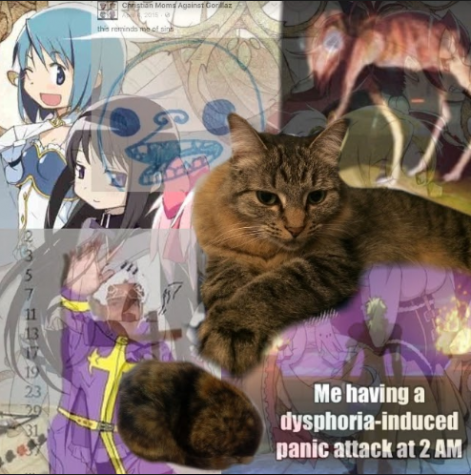The Problem with Private Prisons
In 2016, 8.5% of all incarcerated were being held in private prisons. The practice of operating private prisons has grown monumentally in the past few decades, and will likely continue to grow at an even greater rate in the future. Since 2000, the number of people housed in privatized prisons has increased by 39.3%. With the practice continuing to grow it is important to look at the effects of privatized prisons on the criminal justice system. Private prisons are prisons which are run by “third-party organizations” rather than the government, but still receive money from the government often through some sort of contract. Because of this, private prisons are able to make and collect more money, as more prisoners are being housed.
In the United States, there are a few major companies responsible for almost all private prisons, with the two largest being CoreCivic and GEO Group. In 2011, both of these companies had a total revenue of well over a billion dollars. Major companies, like CoreCivic and GEO Group, often make an attempt to argue they are saving government money, through running private prisons. Upon hearing this, it is easy to immediately assume there are not many drawbacks to privatization, but one must not forget that, in the end, a private prison is a business, with its main goal being profit. Because of this, many private prisons spend less money on employee training in comparison to their federal counterparts, causing issues for inmates in the future. According to the Sentencing Project, employees of these prisons are given 58 less hours of training than most federal prisons, as well as making more than $5,000 less than the average federal prison employee. This leads to a lot of turnover within the prisons, which can often affect the actual quality of prison management.
There are many examples of incidents in which privatized prisons proved to lack the safety of public prisons, and almost all of the examples have taken place in prisons operated by CoreCivic or GEO Group. In 2007, a prisoner was left to die for close to 13 hours after a head injury at CoreCivic operated facility in New Jersey. In 2011, a psychiatrist at a CoreCivic facility in Florida was accused of sexual harassment by several female prisoners. In 2012, GEO Group was investigated after hundreds of complaints involving cruel treatment of prisoners, according to the United States Department of Justice. There have also been several instances in CoreCivic and GEO Group prisons where adequate health care and treatment was not provided. Additionally, the violence rate within private prisons is often higher than the rate in federal prisons. This is likely caused by the high turnover rate in employees, and lack of training.
Privatized prisons also serve a major role in detaining immigrants. Many detainment centers along the border between the US and Mexico are privately owned, and, from news reports in the last year or so, it is pretty clear the standards of these centers are less than humane. According to the New York Times, one detainment center run by GEO had “barely edible food” accompanied with inadequate health care and brutality from many guards. Along with this, there have been many reports of psychological abuse within detainment centers along the border.
It is important to remember that, through all these horrible conditions, there is a company profiting off mass incarceration and subjecting people to less than humane conditions. According to NBC, private prisons are a little over a four billion dollar industry, and the number gets larger every year as the prison population in the US goes up. The mass incarceration problem is much larger than just for-profit prisons, but it is difficult to solve that problem when companies like GEO and CoreCivic as well as others are making millions of dollars off keeping people in jail, rather than attempting to rehabilitate them to rejoin society.
Your donation will support the student journalists of The Tower and John Adams High School. Your contribution will allow us to purchase equipment and cover our annual website hosting costs.

Sierra Weaver, a senior at John Adams, is the Editor-in-Chief of The Tower. She has been a part of The Tower since she was a freshman, and looks forward...








FERNANDO SANCHEZ • Apr 15, 2021 at 10:41 am
In response to “Lucifurion”, I agree that private prisons are a disgrace to our country. However I strongly disagree with the statement that you made about the political “left” not caring about immingrants crossing the border. Both the “right” and the “left” are to blame for not adressing and taking action on the issue of illegal immigration. If we want to end the problem we need a plan to stablize these countries in order for their citizens to stay in their countries. The government needs to find the roots of the problems and figure why people are fleeing their countries.
Towards the end of President Obama’s term he and the Justice Department announced that they would be ending the government’s reliance on Private Prisons. However when The Trump Administration entered the White House then Attorney General halted this plan and therfore continued the use of private prisons for all of Trumps Term.
Lucifurion • Apr 8, 2021 at 12:07 pm
Private prisons are a disgrace to freedom & liberty for Citizens, period but this nonsense of trying to paint those who pay human traffickers thousands of dollars to cross the southern border illegally as “immigrants” is disingenuous & disgraceful.
These people are criminals & illegal aliens who intentionally broke U.S law by crossing the border illegally. Just try crossing Mexico’s border illegally, their laws are harsher than those of the U.S. Who arrests illegal aliens & who locks them up isn’t the issue. The issue at hand is private companies being incentivised to perpetuate the incarceration of those who’ve served their sentence for profit.
If those on the political left cared even a fraction about those wanting to illegally cross the dangerous southern border they’d encourage them to either not come or apply to come legally to try & stop cartels, coyotes & those who exploit women & children for profit in order to stop their ongoing exploitation.
Those who support & encourage illegal immigration in any form are a criminal disgrace & participating in the encouragement of illegal immigration is a Federal crime & those who participate in that encouragement or sympathise with it publicly should be arrested, charged & jailed, in a Federally run facility, not a profiteering corporate kidnapper.
Shirley A Baylor • Mar 13, 2021 at 4:05 pm
I have a son who was just transferred to a private prison from a State run facility, so I am worried not only about his safety, but also about how they are guarding against the Covid-19 virus and what the inmates are given as a precaution to getting sick.
I was told by my son’s attorney that he did not have much time before he would be getting released so I am wondering now, WHY was he transferred to another facility (especially a privately run one), instead of staying where he was until he is released?
I have only read horrible things about Private Run Prisons, and it is written that they are only interested in making a Profit, and they don’t pay their worker very well. So I think All Private Prisons should be closed down. They are more of a downfall than being helpful in rehibit. the inmate.